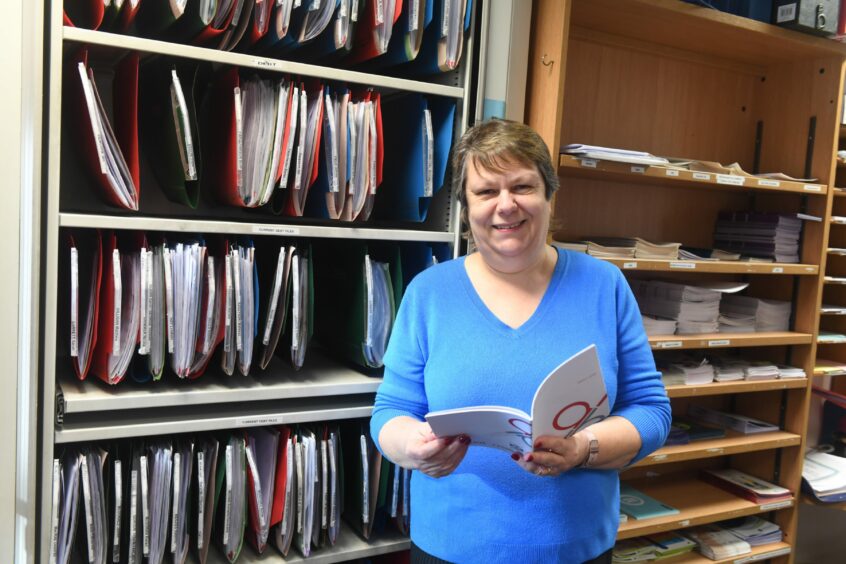
From an early age it was instilled in me how important it was to save and budget for the things I wanted.
My dad was an accountant, so there was no avoiding it. But even if I rolled my eyes a bit in my teen years at the mention of pensions and insurance plans, being taught the basics of managing my money was something I was thankful for later.
As a society we have gone from carrying and paying in cash, to increasingly cashless, where we can buy something with a tap of our phone or card. The ease of which we can purchase goods often makes it hard to keep track.
However, budgeting and balancing the books is not always easy, and for many it’s a skill they have to learn as an adult.
But, even if we do keep ahead of our bills on an everyday basis, if you struggle to understand what inflation will truly mean for you, or deciphering your pension statement is a job for a rainy day – then you are not alone.
In fact research from investment service Hargreaves Lansdown revealed 70% of young people don’t understand their pension. I spoke to a lecturer, a financial planner, and Citizens Advice Scotland (CAS) to find out more.
Laura Sutherland, lecturer, University of Highlands and Islands
Laura, the curriculum lead for business and hospitality, was involved in teaching on a Money Matters drop-in session for students. The short course looked at personal budgeting so the students could think about the money that they had coming in, versus money going out. It also covered the importance of deciding what they were budgeting for, checking bank statements, and using bank apps to keep track of funds as well as the use of money comparison sites.
It also touched upon ways to make savings while shopping and using social to find budget friendly recipes.
She said they wanted to let the students understand why there was a cost-of-living crisis, and said: “Everybody speaks about inflation, but what does inflation actually mean? We spoke a lot about about inflation, and how that impacted in terms of that food prices have increased so much and energy prices have also increased.
“We were just trying to give them [the students] an understanding of how it would impact them, maybe they are living on a bursary, or maybe they have part time jobs, but their money isn’t going as far as what it was before.”
Something which is missed in schools
Learning financial management at a young age is so important Laura says: “I do think that is probably something that is maybe a little bit missed in schools now, and probably why we decided to do the personal finance award. when that award was put in place, we were thinking about the kids that were leaving school, and maybe coming to college or going off to university and thinking for the first time, they would have to learn how to budget their own money.
“It is something we thought would be an important skill that they probably don’t get in school anymore.”
Speaking of a couple of simple things people can do, Laura said: “Keeping track of what you’re spending and definitely thinking about a budget. It sounds so silly – but just being completely aware of everything that you’ve got coming in versus everything that you’ve got going back out again. Maybe setting yourself a little safety buffer of 20%,”
Alana Davidson of Acumen Financial Planning
Alana is a chartered financial planner, providing services relating to savings, investment and pensions. Earlier this year Acumen Financial Planning visited an Aberdeenshire school to give pupils guidance on subjects such as understanding payslips and pensions.
Alana said: “Starting saving for your retirement is so important to do when you’re really young. For a lot of young people, maybe in their 20s, where retirement is a long way off, it might not be very high up in their priorities.
“But starting saving for your retirement younger, can make a significant impact on the value of the pension pot in future.
“I always use the example of two different clients. So you’ve got someone called Laura in her 20s. She saves £50 a month over 40 years. And if you think of just a 5% annualised average return, her pension pot age 60 would be worth around £76,000 pounds.
“If you look at another client, in his 40s – Peter at age 40, decides he’s going to start saving for retirement and saves £100 per month over 20 years to age 60. With that same 5% return, his portfolio would only be worth £41,000 . So they both invested £20,000 over their time period, you can see the difference in the values due to the compounded returns. That’s why it’s important to make sure young people are aware of that.”
Cost of living is so high
“With the cost of living being so high at the moment, people maybe feel like they can’t afford to save to their pension, because there’s other priorities. It’s about really sitting down and budgeting.
Alana said having a spreadsheet at home and really looking at your expenditure was something she would encourage people to do, she added: “You’ll be surprised when you really have a look at what you’ve been spending a month, how much is frittered away on things like going for coffees and cakes, things that you use your phone for £5 here, £5 there. You’ll be surprised when you do this sort of budget and exercise, how much excess cash you may actually have available to put into your pension. And it doesn’t have to be huge amounts.”
‘There’s tools we can use to help’
Citizens Advice Scotland’s Money Talk team can help people make sure they are getting the money they are entitled to, as well as checking they are not paying out more for goods and services than they need to. CAS also has a money map website which includes a budgeting tool.
Kate Dean, deputy manager of CAS in Aberdeen, said they have seen an increase in people concerned about things such as energy and food prices.
She said: “There’s tools that we can use to help somebody to set out their budget. So in some cases, it’s budgeting skills, in some cases just to down to a shortage of money – the money they have available is not enough to meet their needs.
“With online banking, and everything, now, we should have a closer eye on our finances.
“It’s very easy to apply for things using a phone or to buy online, and maybe not consider the budgetary implications just as much as you should have. When you’re offered something on a buy now pay later, it sometimes looks like a small amount that you’re actually paying out a week or a month.
“It’s only when you add that to the rest of your budget that you’ll realise whether it’s affordable or not, I think sometimes people are not doing that as well as maybe they should.”
Where to get help
Meanwhile financial wellbeing manager, Jenny Pittams of Money Advice Scotland, Scotland’s money charity said: ” Having access to impartial and empowering financial education and money guidance is vital, particularly as we navigate the rapidly changing world of personal finance.
“However, it is important to recognise that problem debt and financial difficulty are often caused by systemic inequalities and not as a result of someone being ‘bad with money’ – it is often the case that those with the least money are the best at budgeting.”
Tips on how to save cash can be found at sites such as:
- moneysavingexpert.com
- students can find savings tips at prospects.ac.uk
- They can get help with energy pricing at savethestudent.org.
- National debt charity StepChange can be contacted on 0800 138 1111
- Advice Direct Scotland can be contacted on 0808 800 9060
- The Scottish Citizens Advice helpline can be reached on 0800 028 1456




Conversation